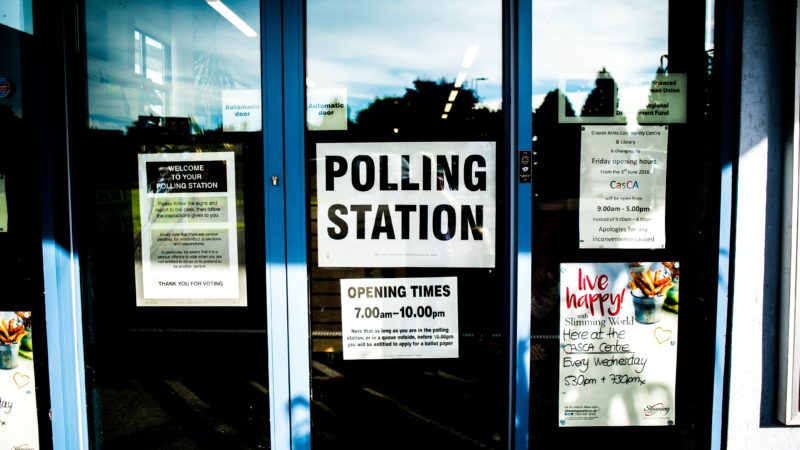
The much-anticipated general election is upon us. With our transformative agenda to deliver a final say on Brexit, unrig the system and create a green economy, Labour is the only party with answers to the biggest questions facing the country.
Every vote counts in enabling us to remove the Tories and enact our agenda. Thanks to the new marginals created by the 2017 election result, a swing of just 1.6% in our favour would deliver the 34 seats required to make Labour the largest party (though we should, of course, aim for much more than that).
Overseas voters, of which there are an estimated 1.4 million, could prove integral to pulling off that shift. 1.4 million people would represent slightly under 3% of the 46.8m 2017 turnout. But there were only 285,000 overseas voters registered in 2017. This number – despite representing only 20% of eligible overseas voters – was a record figure. Overseas voters are a huge untapped reservoir.
Until 2015, the number of registered overseas voters was never more than 35,000. The uptick since then shows there is a clear appetite from overseas voters for maintaining their engagement with British politics. Given the historic opportunity to reject or rescue neoliberalism encapsulated in Jeremy Corbyn versus Boris Johnson, it is sensible to expect this upward trend to continue.
Overseas voters are attached to a wide range of constituencies, so targeting them is good value for effort, especially given the tiny majorities we are looking to overturn in many seats. With this in mind, it is surprising that Labour seems to have no members of staff with responsibility for sourcing overseas votes and encouraging voter registration. Since the election was called, more than 50,000 people have registered to vote. Direct social media of targeting of British citizens abroad, such as those studying, will help increase that total.
Brexit is also likely to yield a comparatively high registration rate among the eligible voters in the EU. Our positive message of a fresh EU referendum should be explicitly marketed to them to avoid a default to the Liberal Democrats.
The number of 2017 overseas voters varied substantially from one constituency to another; Rhondda had the fewest (52) and Hampstead and Kilburn the most (1,933). Whilst the data appears to at least suggest that overseas voters are disproportionately attached to more affluent constituencies, there is evidence to suggest that overseas voters are more likely to vote Labour.
Research by Dr Susan Collard from the University of Sussex revealed that overseas voters in two of the three Brighton constituencies voted Labour more than UK residents did. The sample size was admittedly small, but could indicate a promising wider trend for Labour, especially when one considers that the Tories were the only party to target overseas voters explicitly last time.
To hopefully win the overseas vote, Labour should amplify – especially on social media – the voter registration and campaigning efforts currently being undertaken by Labour International CLP (LI) and Young Labour International (YLI).
In its general messaging, Labour should reinforce that proxy voting is better than postal voting for overseas voters. Postal votes are less likely to arrive on time for a host of reasons, and councils cannot even send them out until 19 days before election day, after nominations have closed. After the 2019 European elections, there were widespread reports of ballots not reaching voters, or failing to get back to councils, in time for the poll.
YLI suggests that in Labour’s mass mail-outs, all members should be prompted to remind family and friends abroad that they can nominate a proxy to vote for them. In the event of a voter not having someone they can trust to serve as proxy in their constituency, the party could encourage relevant Constituency Labour Parties to arrange proxies for them. YLI is happy to direct overseas voters to CLPs.
On the issues themselves, overseas voters are likely to have similar concerns to domestic voters – wanting a fairer economy and a habitable planet. But Labour could also emphasise manifesto pledges most relevant to people abroad, especially those who perhaps have loved ones who are foreign nationals. Respecting the wishes of party conference on free movement seems of particular relevance here, as does our internationalist Green New Deal proposal and, of course, Brexit.
Finally, Labour members living abroad but wanting to be part of the action can be a great campaigning asset to the party, especially through home-based campaigning activities such as phonebanking. Investment in providing encouragement, training and even funds to Labour International could pay dividends. Momentum are doing excellent work with activists abroad, and the party should fully harness this resource.
Overseas activists are already mobilising, with many Whatsapp groups and volunteer teams springing up. From phonebanking to research to arranging in person campaigning, there is so much overseas activists can do. To get involved, please contact Young Labour International.
The perceived threat of a radical Labour government alone is likely to galvanise Tory voters abroad, no matter what (if anything) the Conservatives do to court them. We must mobilise against this, and any campaign efforts of the now single-issue Lib Dems. To win a majority, Labour needs every vote it can get – and it must make the most of overseas voters and activists.




More from LabourList
‘Council Tax shouldn’t punish those who have the least or those we owe the most’
Two-thirds of Labour members say government has made too many policy U-turns, poll reveals
‘Two states, one future: five steps on the path to peace for Israelis and Palestinians’